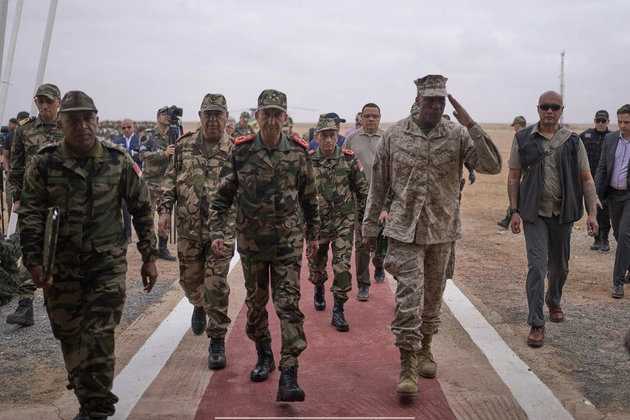
The U.S. military is adjusting its approach in Africa, moving away from traditional themes of governance and insurgency towards a new emphasis on empowering its allies to operate independently. This shift was evident during African Lion, the largest joint training exercise on the continent, where General Michael Langley highlighted the importance of enhancing partner capabilities for autonomous operations.
Preparing for Independence
During the four-week exercise, troops from over 40 nations practiced various scenarios to counter threats across air, land, and sea. While the maneuvers resembled past iterations of African Lion, the rhetoric has evolved to prioritize enhancing allies’ security management abilities over other diplomatic aspects.
Langley underscored the current administration’s focus on homeland defense and international burden sharing, urging countries to contribute to global stability efforts such as the support provided to Sudan. This strategic realignment aligns with the U.S. military’s goals of creating a more agile and potent force.
Rising Challenges from Adversaries
Amidst these changes, the U.S. faces escalating competition from rival powers like China and Russia, who are expanding their military influence in Africa. China’s comprehensive training programs for African armed forces and the growing presence of Russian mercenaries pose new challenges to American interests in the region.
The evolving landscape underscores the need for a reevaluation of the U.S. approach to countering insurgency and fostering stability in fragile states. While Langley previously emphasized a holistic government strategy, the current narrative emphasizes building partner capacity for self-sufficiency in security matters.
Adapting Strategies for Success
Although some initiatives have shown progress, like the combined efforts in Ivory Coast that reduced extremist attacks, the path forward remains complex. Langley acknowledges the mixed results of U.S. interventions, highlighting the need for continual adaptation and improvement.
As Langley prepares to transition out of his role, the U.S. military in Africa faces a period of reassessment and recalibration to address the evolving dynamics of regional security challenges.











